June 1, 2016
Click here for the full written transcript of this podcast episode.
Dr. Chris Masterjohn is one smart dude.
You'll understand why when you listen to today's podcast episode, which we recorded face-to-face at PaleoFX in Austin, Texas.
Chris earned his PhD in Nutritional Science in 2012 from the University of Connecticut at Storrs, where he studied the role of glutathione and dietary antioxidants in regulating the accumulation of methylglyoxal. He served as a postdoctoral research associate from 2012 to 2014 at the University of Illinois at Urbana-Champaign, where he studied interactions between vitamins A, D and K. He is now Assistant Professor of Health and Nutrition Sciences at Brooklyn College in Brooklyn, NY, where he is continuing his research on fat-soluble vitamins.
Chris has authored or co-authored ten peer-reviewed publications. His writes a blog, The Daily Lipid, and produces a podcast by the same name. You can also follow his professional work on Facebook, Twitter, Instagram, YouTube, and Snapchat.
During our discussion, you'll discover:
-The #1 thing that affects your circadian rhythm and ability (or inability) to sleep…
-Why some people are more sensitive to blue light than others, and how you can figure out your own sensitivity to blue light…
-Why Chris plays video games at night…
-How much sugar you really need (you'll be surprised at the answer)…
-The best time of day to eat carbohydrates…
-The best time of day to eat amino acids, and why you should use a collagen form if you have protein at night…
-Whether eating liver is really toxic…
-The single most important stretch that Chris does with a broom handle…
-Why advanced glycation end products (AGE's) aren't really the biggest culprit when it comes to aging…
-How ketones can actually cause damage to your body…
-Which nutrition deficiencies affect your body's ability to make melatonin at night…
-And much more!
Resources from this episode:
–Chris's post about how to determine your own genetic sensitivity to blue light
–My podcast on marine phytoplankton/stem cells
Do you have questions, comments or feedback for Chris Masterjohn or I? Leave your thoughts below and one of use will reply!



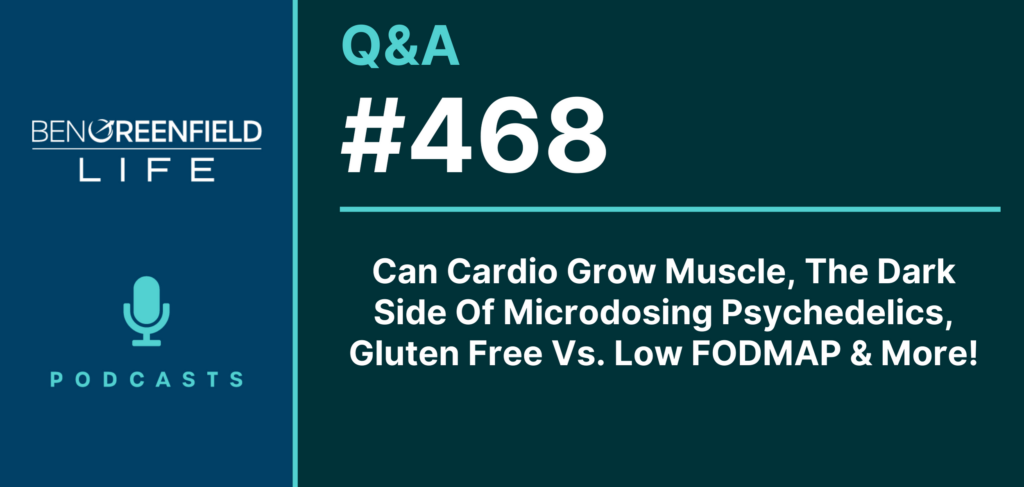
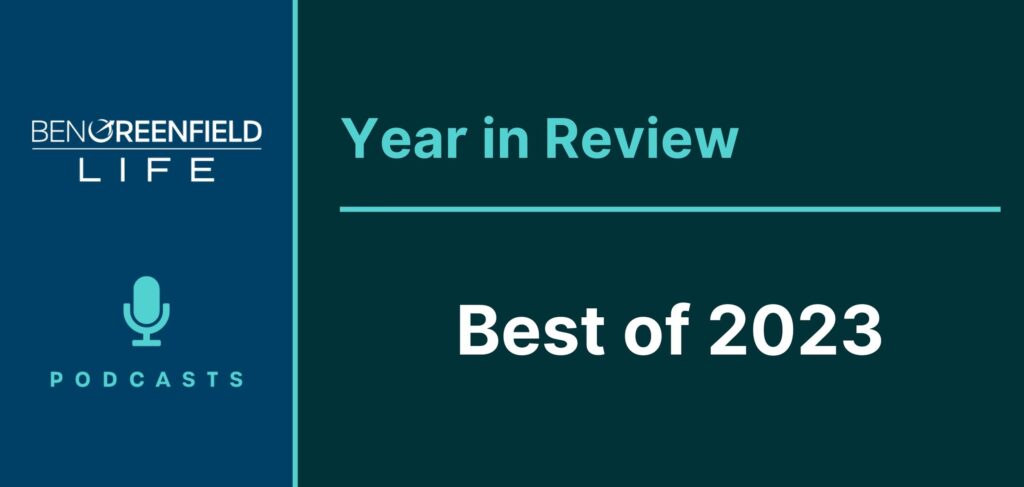
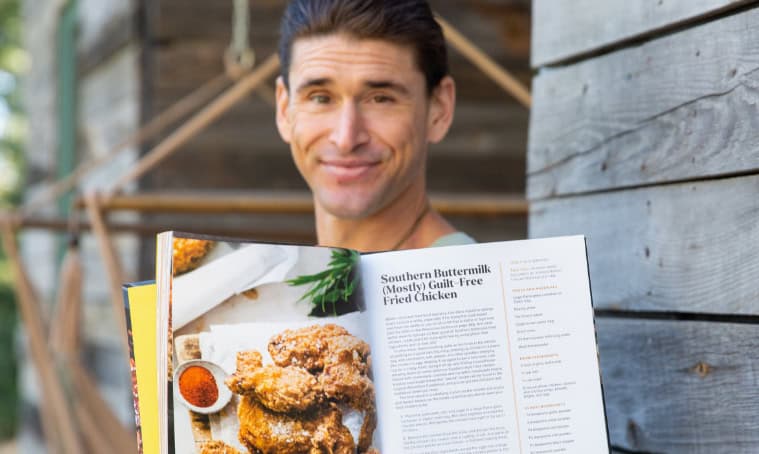
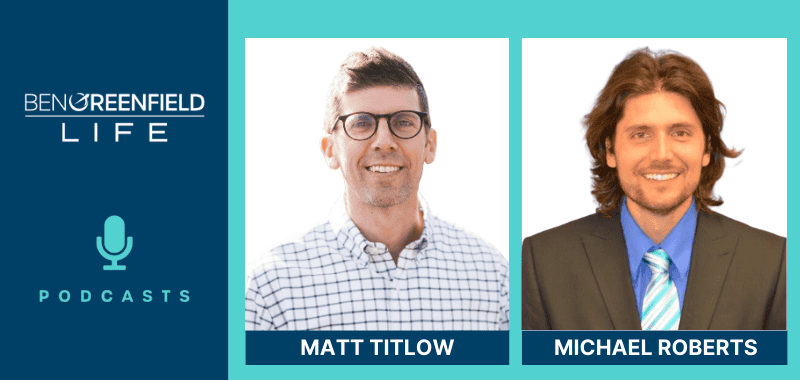

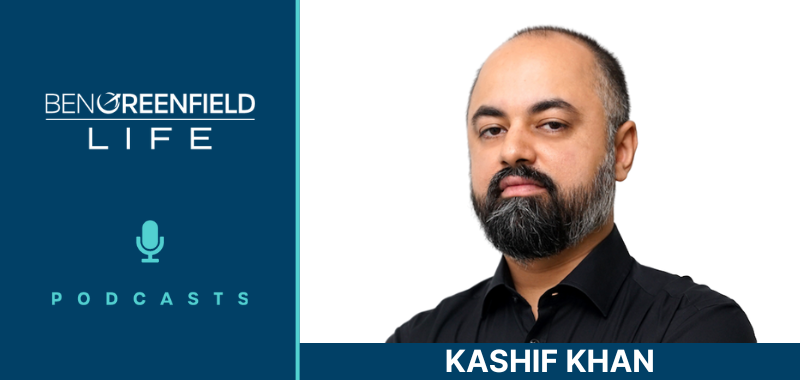
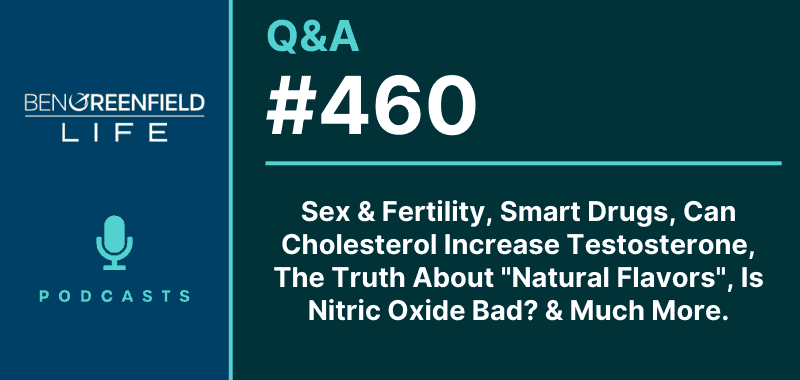
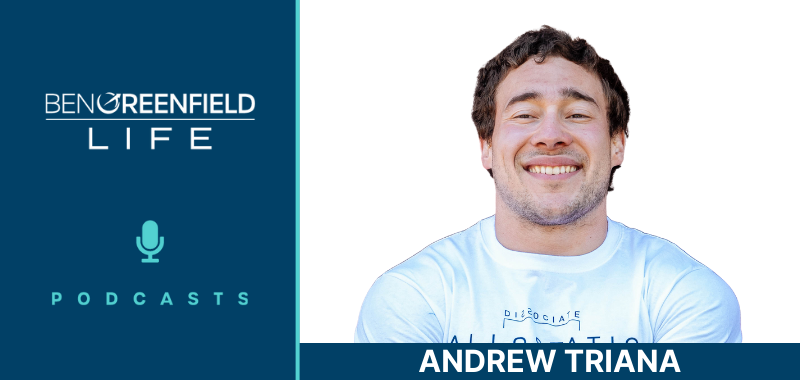
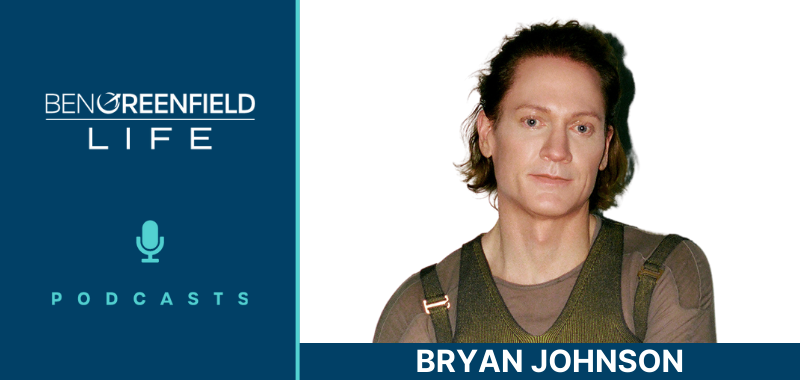
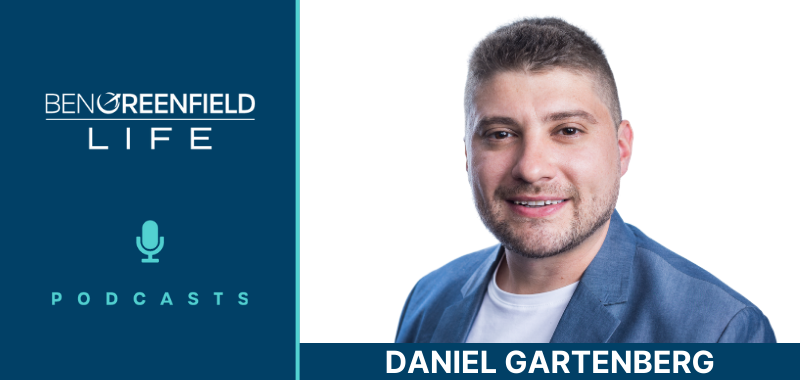

Hi Guys-
When you talk about eating carbs at night as the best time to eat carbs, what types of carbs would you recommend?
Grains like quinoa, rice etc, and vegetables like sweet potato and yam are good options!
I’m having trouble picturing what the pvc/broom exercise is supposed to look like. Can anyone point to a video of how to do this?
Also, the link to where you guys buy the collagen?
Video: https://youtu.be/GXzkLAKyBhw
Collagen: https://bengreenfieldfitness.com/bpcollagen
Hi Chris,
Is the vitamin K recycling polymorphism you have available on 23andme?
Thanks, Marcel
Great podcast it blew up my Twitter analytics sharing it…
Chris you mentioned the RS, SNP for the blue light? Could I ask you for that. I’ve taped off and been a light weirdo since forever. Would love to correlate. Thks @fysiologik
Dude, I’ve heard you refer to him numerous times as “Dr John Kiefer”. He is NOT a doctor at all.
Good day,
May I please ask for clarification –
Do AGEs have a “higher” likelihood of occurrence with a ketosis based diet, or were you stating that it has as much possibility of incidence as with a normal diet with carbohydrates?
Thanks for your time.
Hi Andrew,
There isn’t enough research to answer this. However, the only study (one that has too many limitations to be the final word) to address the issue found that methylglyoxal, the #1 cause of AGEs, is higher on the Atkins diet than on a “regular” diet.
Ben and Chris,
Greetings from Moscow, Idaho with much thanks for this great podcast episode! I too need it very dark to sleep and need to keep it very dark with every bit of artificial, electronic light blocked. The moonlight making it into my room does not bother me at all. When I it heard mentioned that humans of northern European ancestry (I’m 100%) have a gene that makes them more light sensitive to blue light in the evening, I checked my gene base and found I am CC. I then informed my husband he can no longer make fun of me on this issue, and he said he now understood my quirkiness – but will still make fun of me. I used to get up and look outside my window first thing in the morning but have been making sure this past month I get outside with no hat or sunglasses and look east, walk/jog east/weed east. It has made a positive difference for me.
Also, I found the discussion of carbohydrates in the evening very applicable. I have been keeping my mornings fairly carb free, increasing them as the day goes on. When I do this, it really helps me sleep past 3 – 3:30 without waking at night. I realized I need to make this my daily habit.
Thanks again for all you two do. I have followed you both for years and want you to know you are both very much appreciated.
What are collagen rich proteins, vs. amino acid rich proteins?
You state we should eat each of these at different times, but not clear how we distinguish between these categories to follow your advice.
I tried a search on Google, but nothing came up that distinguishes between these.
Thanks in advance for your response.
Cheers,
Luke
Hi Luke,
Collagen-rich proteins include bones, skin, tendons, and similar types of connective tissue. Gelatin is collagen. For supplements, gelatin, hydrolyzed gelatin, and hydrolyzed collagen peptides are available.
Chris
Interesting episode, great smart guest. Was your faked southern/texan accent on purpose ? It doesn’t make one sound particularly smarter…
Haaaa…..I agree with John. I was bored shitless.
If you can’t sleep with out your big arsed blinds heaven bloody help you sleeping out in the bush under a full moon…or even no moon.
#precious
And though I have been listening to a few of these podcasts the past few weeks what’s struck me the most is how myopic this branding of “fitness” is….
But I guess it’s what the audience wants….all about me me me me.
What about how our choices affect the global community?
Talk about entitled and privileged… :-/
Grass fed beef and the most absurd niche marketed gadgets and gear I’ve ever come across!
FFS if you can’t be fit strong and healthy without all this BS you’re a princess.
Give a shit about something other than how good you look in your workout gear or how dark your room can get..
Be kind instead to those whose lives you destroy by this incessant self worship.
Go whole foods plant based or close to it….nothing fancy. Eat freaking simple healthy plant foods.
And move. Every day. Til you break a sweat for a while.
Stop sitting on your arse and geeking out over bullshit that just consumes the consumer.
And that way you can be all of those things: fit, strong, healthy, active, not broke…. And be kind and responsible to animals, yourself and the planet and ALL it inhabitants.
I’m done with Boyish Ben.. All this testosterone overloaded posturing and pontificating has done my head in.
Back to the bush and a glorious nights sleep under the Milky Way and big bad assed full moon ????????????????
The propeller flew right off the hat on this one. Major big medical word geek outs. I love this stuff. I usually have to listen to certain sections twice to fully get the information.
Hi Ben, thanks for the info. Can you comment on the use of phGABA found in the sleep cocktail? I was under the impression (could be wrong) that gaba supplementation should be avoided. I’ve been having difficulty sleeping at times and have been taking about 1.5mg of melatonin recently. I’d like to stop because i’m sure that isn’t good either but haven’t had success in that yet. Thanks!
Hi James,
I won’t speak for Ben, but I will say for myself that after fixing my vitamin A nutrition and developing a consistent light-based routine (morning sunshine and blue-blocking at night), I have gone from being relatively dependent (more nights than not) on time-released melatonin to being completely independent of it. It has been almost a year since I have taken melatonin. I think these things are good band-aids but the solution should be to get beyond the need for pharmacological (even if natural) sleep aids.
You forgot to provide a link to your kids cooking demos!!!
It's here: https://bengreenfieldfitness.com/paleo16/
Hi Ben – great podcast as ALWAYS! The stuff about AGE’s and perhaps the negative impact of ketones and having too low a carb intake was a bit over my head. Most of us have come to believe that ketosis and intermittent fasting are both really healthy and these protocols are indeed followed by myself. I should state that I do not do testing and my venture into ketosis is quite recent/new; in all probability, I am likely not fat-adapted. I am currently doing 35-45g of carbs each day and lift weights 4 days a week, 2 days with a short HIIT session and a free day. 45 years old but my concern is that I have been under immense stress over recent years as my wife had a brain aneurysm and is now fully disabled with severe cognitive deficits… back in 2009. I have since struggled financially and in essence, am now a single parent… spending my time in raising our son and of course, doing everything for my wife. My concern is that I am one of those who tends to wake at 3.30-4am but am confused as to the likely reason. I know my hormones are out of whack as I restricted calories too much last summer in an attempt to get leaner; big mistake! I then binged…. and then listened to John Kiefer and got interested in carb backloading. This was a huge mistake as I used it to justify my carb loads and binges…. ice cream and junk. I now know better. I am getting leaner (12-13% bf) and take in plenty of superfoods. Cravings have gone since lowering the carbs. My confusion is about whether I could be doing damage but eating too few carbs? Stephanie – the keto lady on YT, though not qualified as far as I know, seems to think ketosis is the only way and I must admit, I do like her videos because she has likely learnt very much by dealing with real people via her clients. She is almost 50 and she does look good and as you may or may not know, is bouncing with energy. As far as I know, ketosis not only provides numerous health benefits but it doesn’t seem to hamper performance – both at low and even high level intensity (once fully adapted… over a period of many months, not the weeks as is often put out). Any simple way of explaining about these AGE’s? Would you think a great way would be to cycle in and out of ketosis (a couple of times each season) could provide the best of both and perhaps, be more akin to natural/primal eating?
Hi Mike,
The simplest thing to say is that you get less AGEs when you are sensitive to insulin and have a significant insulin response. You need some carbohydrate in your diet to provide the insulin response that would be maximally protective.
If you want to take a further stab at wrapping your head around glycation, I recommend episode 6 of my new podcast:
http://blog.cholesterol-and-health.com/2016/05/the-daily-lipid-podcast-episode-6-why.html
As well as my writings on glycation:
http://blog.cholesterol-and-health.com/2016/05/start-here-for-glycation-and-ages.html
And keep a lookout for episodes 12 and 13 of my podcast next week.
Regarding ketosis in general, I cannot represent Ben or any of the others you cite, but I would point out that for most of human history humans have predominantly been exposed to a load of carbohydrate that would provide only limited ketogenesis during an overnight fast or intermittent periods of dietary deprivation. Humans evolved in equatorial regions where plant foods were abundant. Ketosis would, at best, be something limited to the arctic, but even in that case we have evidence, for example, that the Inuit did not have elevated urinary ketones. So it can’t be the case that ketosis is “the only way” if most humans have for most of human history eaten a carbohydrate-inclusive mixed diet that would suppress ketogenesis in the fed state.
Mike,
I would also like to say that I think waking up 3:30-4:00 in the morning is a sign of insufficient carbohydrate intake. If you listen to the podcast closely, you will notice that I even cite that exact phenomenon as a sign of excessive carb restriction.
Chris
Great podcast guys, I get the 100g daily carb idea but what if that bolus of carbs in the evening causes a blood sugar spike such that you’re still over a 100 2hrs after consuming it? Does Chris think this is a problem or just a hormetic stress that could be good for insulin sensitivity? And therefore if your fasting blood sugars and blood sugar profile is good for the rest of the day should the benefits of not raising cortisol by gluconeogenesis be greater than the blood sugar disregulation experienced?
Big fan of you both!
Hi Tony,
I can’t say that it isn’t a problem, but I don’t know of a compelling reason to think it is one. I think there are some indications that eating your meal more than two hours before bed is best, but I think that is much less important than getting good sleep. So I would put the bolus at, say, 6 or 7 if you are going to bed at 10 or 11, but if that isn’t sufficient to make you appropriately sleepy, I think it is better to move it later if it fixes the sleep problem. If you have problems regulating your appetite and food timing, getting good sleep is likely to put you in a better position to solve them.
Chris
Thanks, Chris. Physiological insulin resistance due to keeping carbs low is a possibility but now I’m confused as to the best strategy given my family history of T2D..
Hi Ben,
Has this interview changed your perspective or your recommendations regarding the ketogenic diet, or ketosis in general?
No, since I follow a cycling ketogenic diet with carb refeeds, but stay tuned as I am interviewing Dominic d Agostino soon!
Thank you! Can’t wait for that ep!
Interesting discussion. I am skeptical about the claims that gluconeogenesis generates excessive production of cortisol on ketogenic diets. It seems thos would be the case on the context of individuals who over exercise and are fanatic about “Crossfit”. However, high cortisol is even common with those who eat more starches if they’re over-exercising. So whats the main factor on high cortisol in some keto-dieters? The keto diet itself or extreme exercise?
I suspect the latter. How can someone not have elevated cortisol when they run at the rate of an Arabian racehorse?
Abu,
Cortisol is largely driven by the need to maintain blood sugar. In carbohydrate restriction, cortisol is needed because dietary carbohydrate is not maintaining normal blood sugar. In intense exercise, body stores of sugar are being depleted, so either more dietary carbohydrate or more cortisol are needed. In the fight-or-flight response, cortisol increases blood sugar above normal. If you combine these, you get a cortisol response that reflects the combination. So there is no one answer to what someone’s cortisol will be on a ketogenic diet. It is one of several inputs.
Chris
I just tried to check rs1079610, in my 23andme, and it’s not show up is. Is it possible that the newest results don’t include this snp?
Hi Johane,
Unfortunately it turns out that if you got 23andMe after 2014 or so, they did not genotype you for this. Many people have existing accounts from earlier, and it is available to them.
Chris
How about supplementation with MaxOne or NAC to increase the level of glutathione
Hi Miro,
Those can be helpful if the limiting factor is cysteine, and it often is. But glycine can also be limiting, and neither of those products contain glycine. The regulatory process can be limiting — for example, lack of hormetic responses that upregulate glutathione synthesis or lack of insulin signaling, which upregulates glutathione synthesis, and neither of those products solves either of those issues. So there is a a place for them, but resolving glutathione status or making a good glutathione status great can be more complex than just delivering cysteine.
Hey Ben, I love your podcasts, especially when they include some talk about sleep, which is one of my challenge areas. I always learn tons from you and your guests, and as a lifelong learner that’s one thing that fuels me. I have heard in many of your podcasts you reference a DNA test, and a way that you can check for specific genetic markers to see if you have them or not. I would be very interested in getting that kind of DNA test done, could you put a link to someplace we could order something like that online in the show notes? Also, could you explain a little more and give a link to the thing you put the numbers into in order to check if you have a particular genetic marker or snip or whatever? Please excuse me if some of my terminology around the DNA/genetic stuff is not correct, all of this is pretty new to me. Do you have any articles or podcasts that explain it?
Hey Donna, DNA testing can be done here.. https://greenfieldfitnesssystems.com/product/23an…
And the website you're referring to is https://www.promethease.com/ – you should be able to find everything you need to know there!
O wow, I feel normal after hearing you guys talk about hacking bedrooms to be dark. I travel with black plastic bags, duct tape and Prestik glue to cover all light sources in hotel rooms. Every morning I diligently remove everything because I don’t want the cleaning staff to be creeped out by all my contraptions. Lol!
I don’t know if it is just my pea brain, but this was an intense discussion of lots of things I don’t understand. I got the general idea, but wow!
Omg.. You guys have way to much time on your hands… You can’t sleep .. We get it .. We don’t need
To hear a 30 minute monologue on black out shades .. ????????
Word SCOTT……